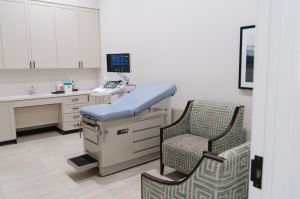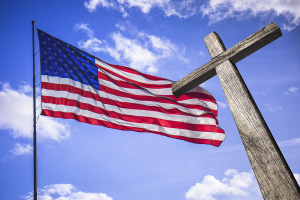Transforming lives post-abortion: A fresh take on healing

The first duty of Christians is to love and serve God. The second comes from it: to treat our neighbors like ourselves. This two-part mission is what drives most after-abortion healing counselors, therapists and volunteers. They recognize the pain that often leads women and men to abortion, and the suffering that often follows. Rather than turn away, they are the Good Samaritans who help neighbors and strangers alike, seeking to be the loving hands of God for those who are suffering.
After-abortion counselors are truly following the two most important commandments. And new research indicates this work can help more people be even more effective by listening to people and meeting them where they are, like Jesus listening to the woman at the well and protecting the adulterer before sharing His healing truth.
A brief background on after-abortion healing
The need for after-abortion healing resulted in many groups taking on this critical work in the 1990s. Organizations such as Project Rachel, Rachel’s Vineyard, Forgiven and Set Free, SaveOne, and Surrendering the Secret have since helped countless women and men begin their healing journeys.
These groups were founded on the Christian belief that healing can happen only when it is centered on God. This approach met the culture where it was. Over 90% of Americans identified as Christian in 1992. They also typically provided support through in-person group settings.
But three things have changed in the last five years that have radically altered the after-abortion healing landscape. The first is that self-identified Christianity dropped to 63% in 2018 and even lower among younger people. Second, the pandemic accelerated the use of medication abortions, taking this procedure from a third-party location with emotional and physical anesthesia to a woman’s own workplace or bathroom without anesthesia and often without support. Third, the pandemic pushed human gatherings of all kinds, including mental health therapy, online.
This means that the group most likely to have abortions and therefore to need after-abortion healing — young millennials and members of Generation Z — are not likely to embrace religious, in-person approaches to healing. That’s why we the authors — one a practicing Protestant and licensed mental health therapist, the other a practicing Catholic who has dedicated her retirement years to Catholic philanthropy — believe in a new abortion-healing approach that focuses on the client’s preferences and needs.
A new approach to meet the new needs
We’re affiliated with Support After Abortion, which uses nationally representative research and mental health best practices to serve thousands of people suffering after abortion. Support After Abortion’s research indicates that a new approach to after-abortion healing can achieve greater healing for many more women and men.
For example, while 71% of men and 34% of women suffer adverse impacts from abortion, just 40% of men and 16% of women prefer a religious healing program. Almost 3 in 4 women “seldom to never” participate in religious services; 53% of men said the same thing. And almost nobody indicated they would go to a member of the clergy for help.
What 77% of men and 69% of women did say is that they want an anonymous approach to healing. This matches the anecdotes we’ve heard, where people worry that they’ll be judged by pro-life advocates for their abortions and ostracized by abortion advocates for not shouting about it.
These research findings led Support After Abortion to promote a new approach that meets people where they are and offers them options that fit their preferences — whether that’s religious or secular, virtual or in-person, clinical or peer-facilitated, one-on-one or group, and so on. That’s the message that’s been in front of Black and Hispanic fathers at a conference in Los Angeles, social workers in Chicago, and pregnancy resource centers in Louisville. Our first-of-its-kind National Abortion Provider Referral Directory allows people to find the healing provider of their choice who meets them where they are. And our monthly best practices webinars, one of which inspired this essay, draw 250 lay counseling leaders.
Support After Abortion’s After Abortion Line has likewise changed. Clients have anonymous options like texting, online chat, social media, phone calls, and emails. We respect client privacy by not tracking site visits. And we use the mental health therapist's best practice of letting clients lead the way to the solution — which today might just be a conversation.
This research is bolstered by hundreds of anecdotes. As one mother shared, “Virtual would be easier because I have other children to care for.” One client had been trying to find help for the 10 years since the abortion experience, “but they were … exclusively faith-based,” the client said. “I don't want to lose more time because I didn't deal with my emotions, feelings and grief in a healthy way.” And Sisters of Life uses our secular resource Keys to Hope and Healing in order to meet clients where they are, with many clients continuing their healing journey with the Sisters’ religious program.
Letting God take charge of spiritual healing
Like everyone involved in after-abortion healing, we recognize the pain behind each person’s story. But women and men have become more separate than ever from the faith of generations past. After-abortion healing must meet their needs by using what works today and letting go of what no longer works.
This means letting God take care of someone’s spiritual healing in His time, not our own. We do it in other areas of our lives all the time. We give the homeless man a blanket, bed and meal at a homeless shelter without forcing him to read Scripture first. Missionaries often put food and medical care before Bible study. And a priest’s job is to save souls through confession and the Eucharist, but he also enjoys communion and fellowship after church and over BBQ at the annual parish picnic.
Most of the abortion healing movement identifies as pro-life, though some abortion-affirming programs like Exhale exist. But as Support After Abortion’s research shows, opinions about abortion matter a lot less to those suffering after abortion than finding a safe place to open up about their pain, fear and loss — which is why 55% of women and 78% of men who seek healing after abortion identify as pro-choice.
After-abortion healing is a human issue that’s often hidden behind politics and religion. These barriers can be walls that block women and men from emotional, mental and spiritual health. But, sometimes, the road to Heaven starts with a kind word — in God’s perfect timing because His presence and mercy are endless.
Originally published at Religion Unplugged.
Janine Marron is a Catholic philanthropist and board chair of Support After Abortion. Lisa Rowe is a licensed therapist and the CEO of the nonprofit Support After Abortion.
Lisa Rowe, LCSW, is CEO of the abortion healing organization Support After Abortion.




























